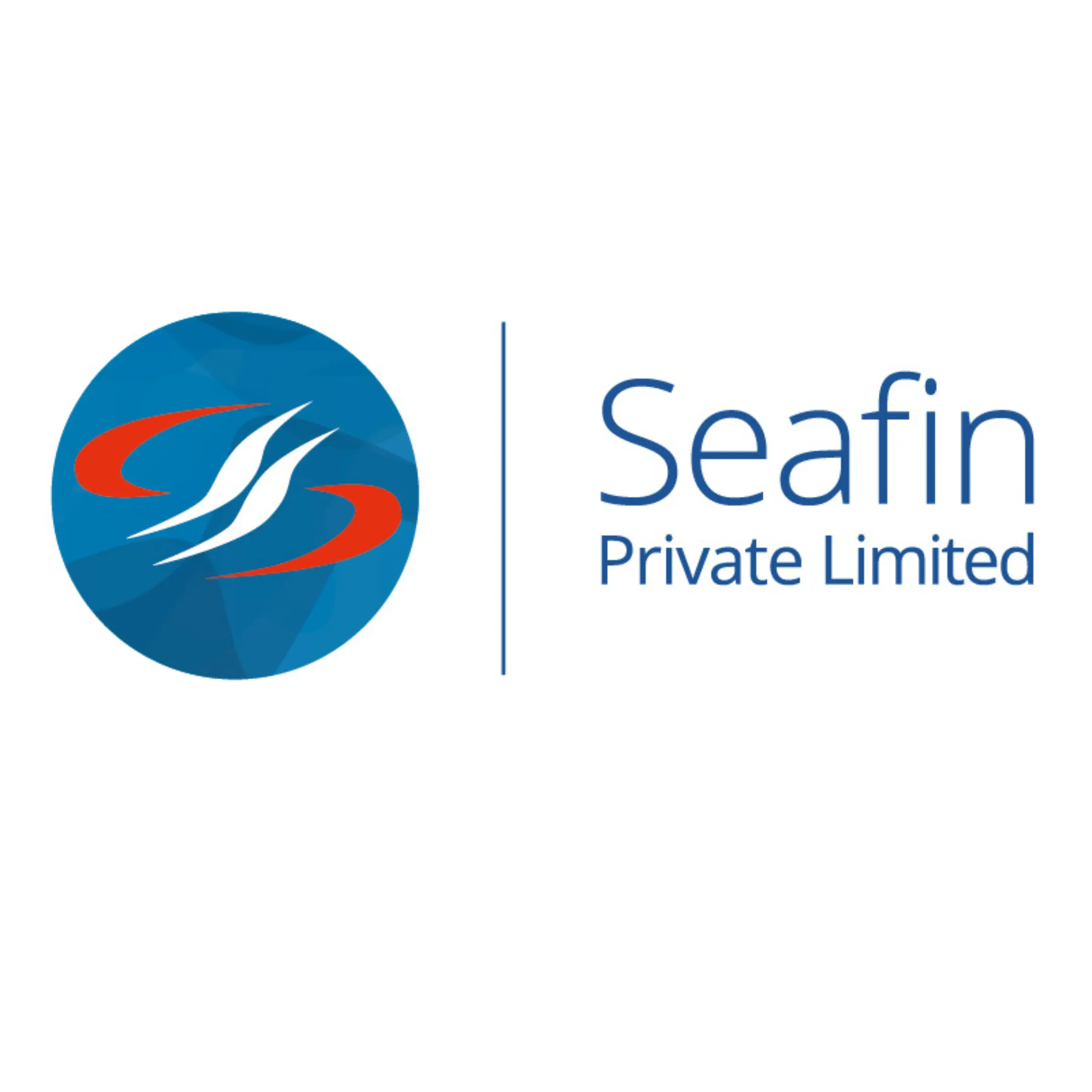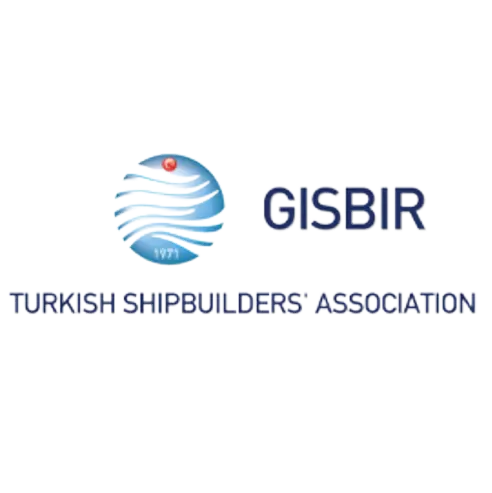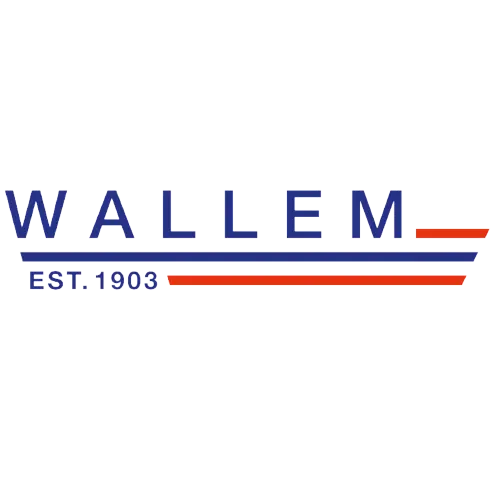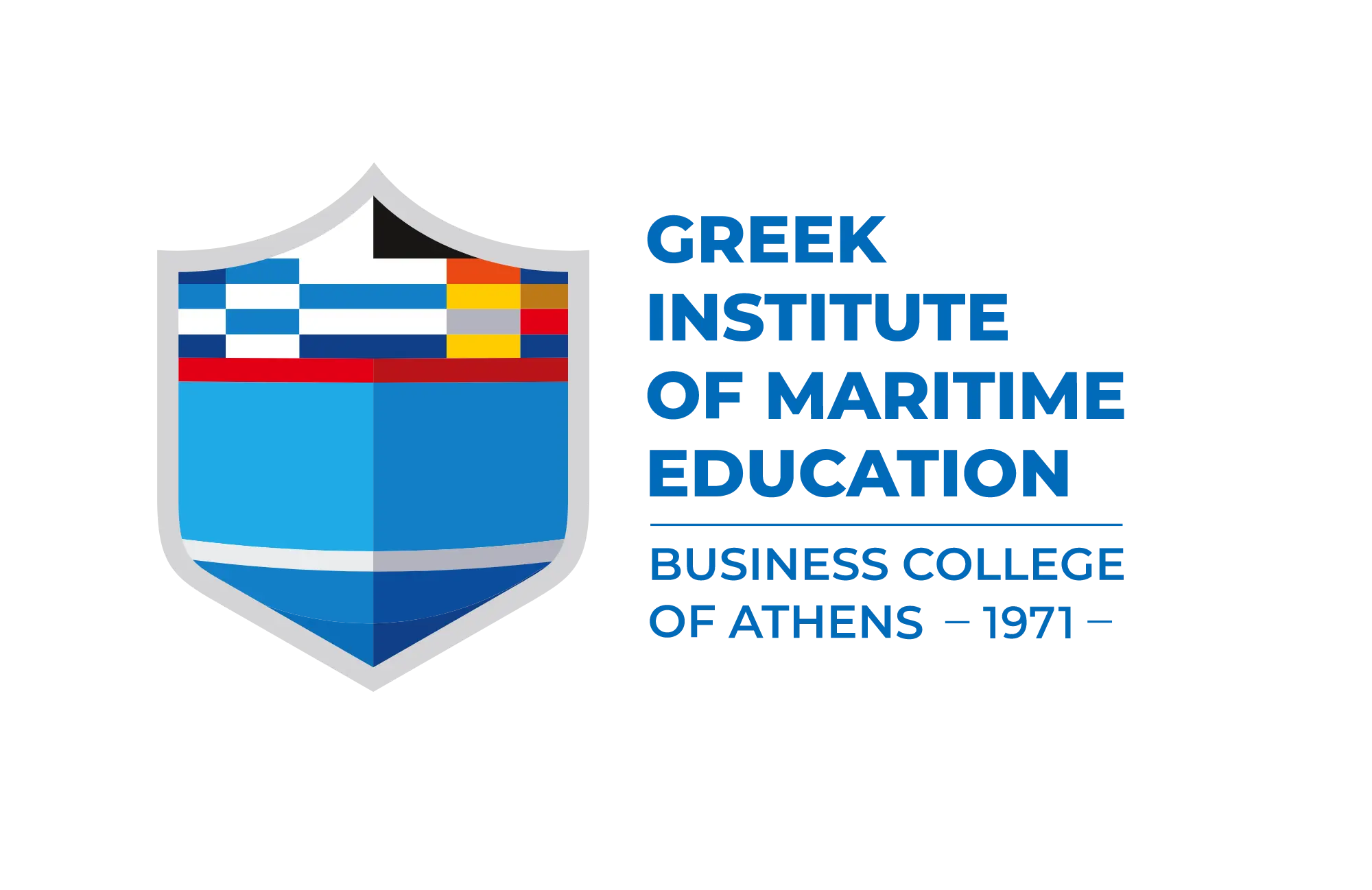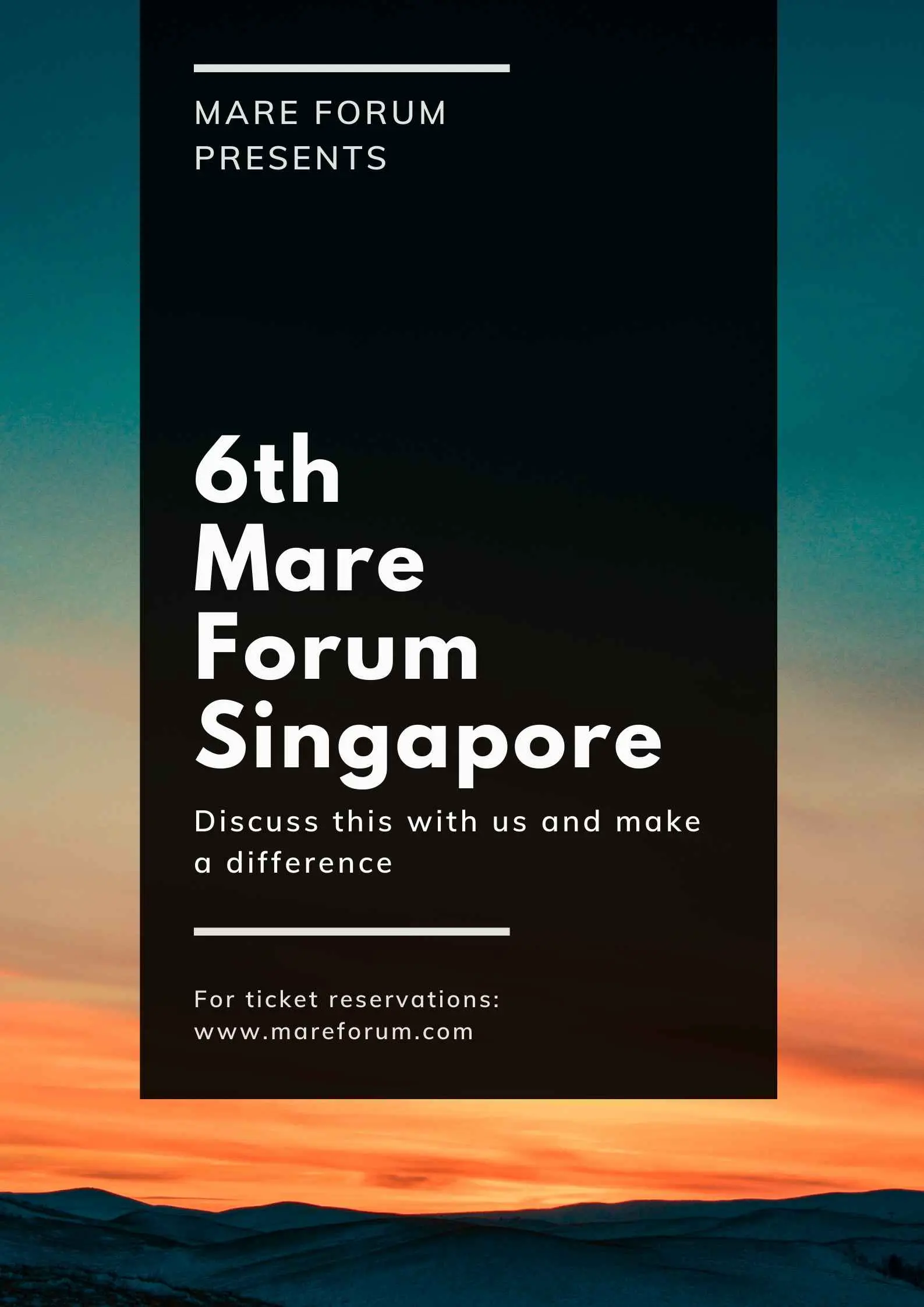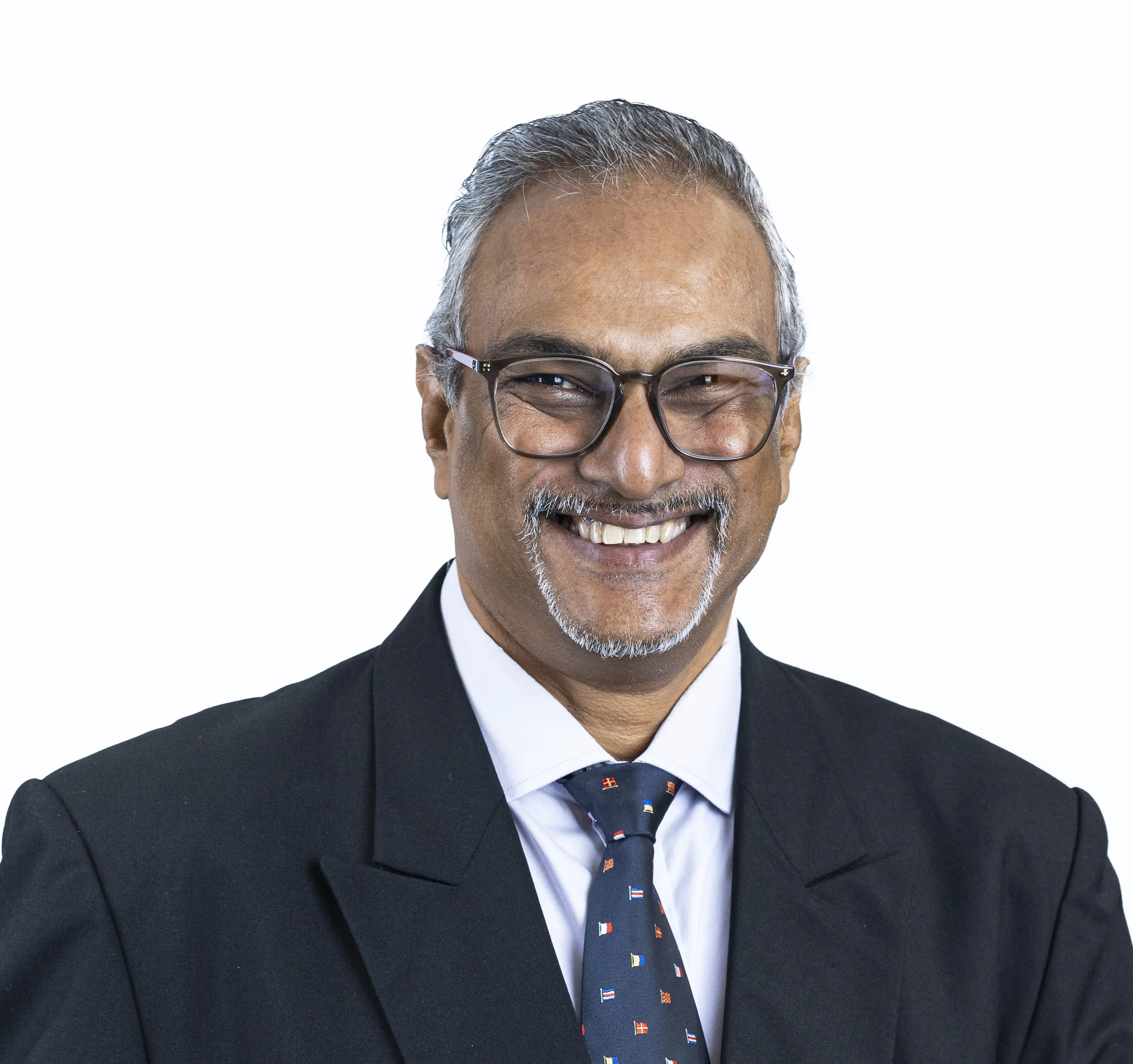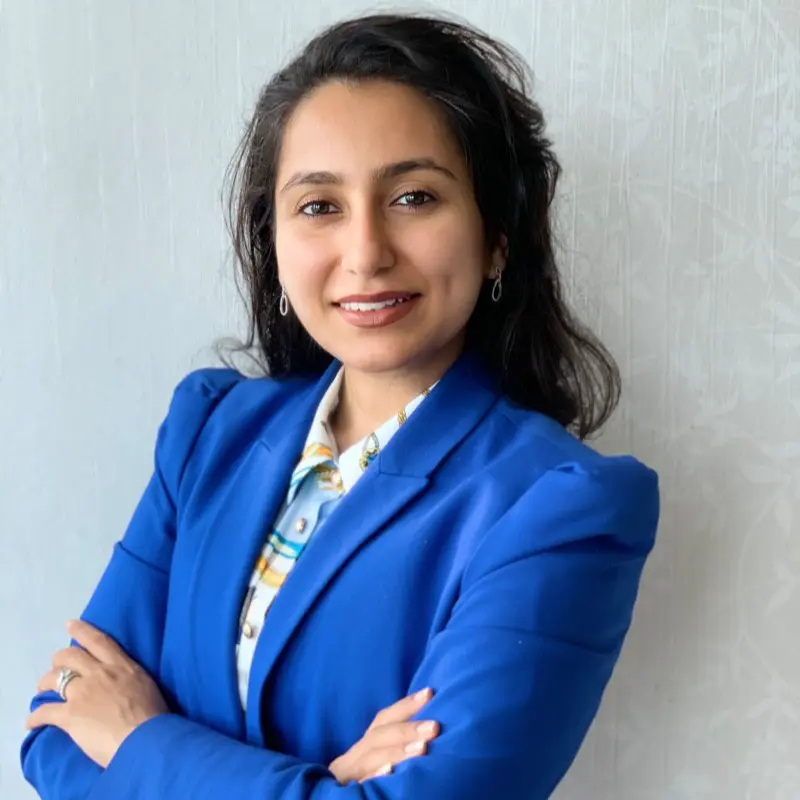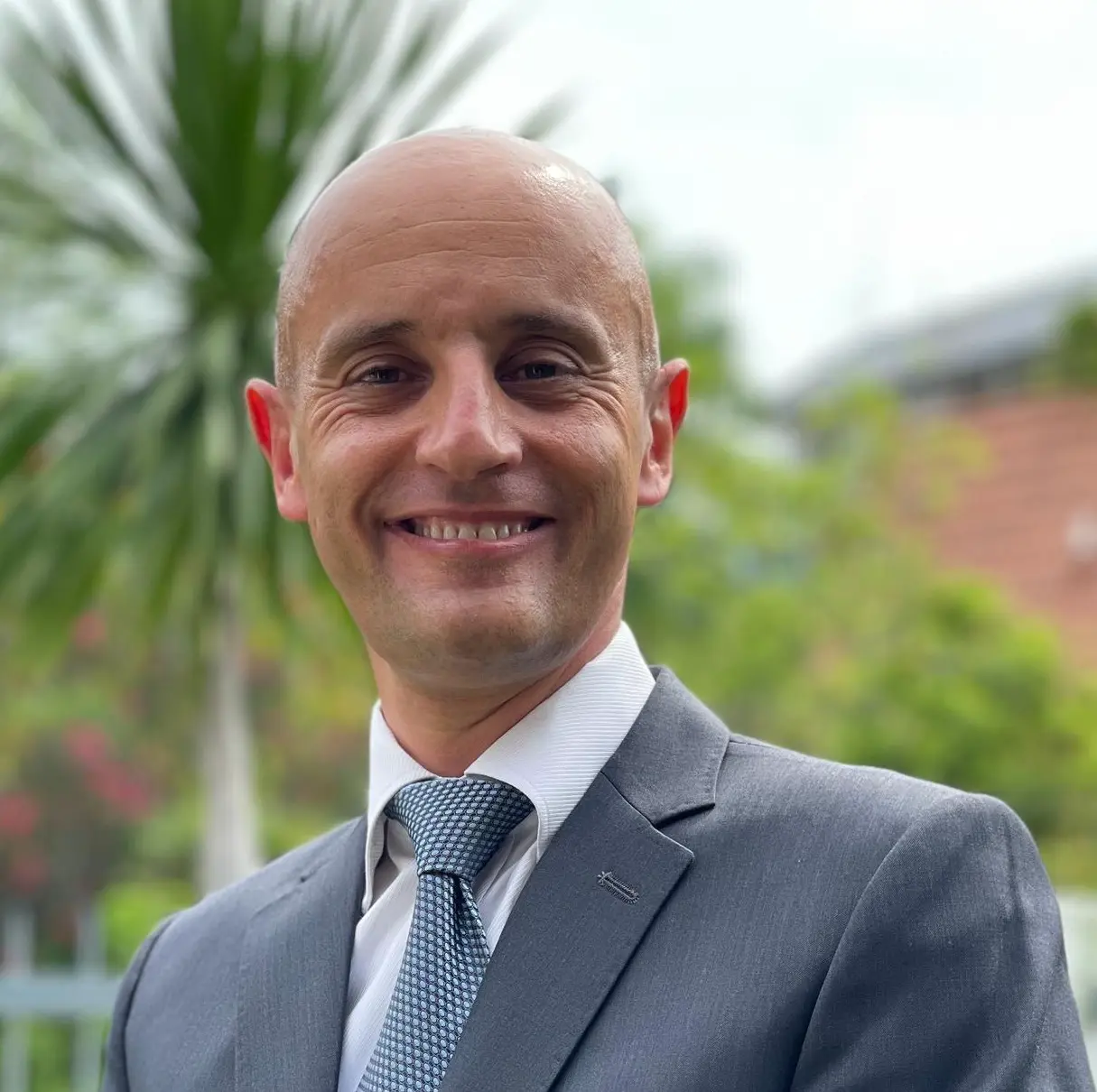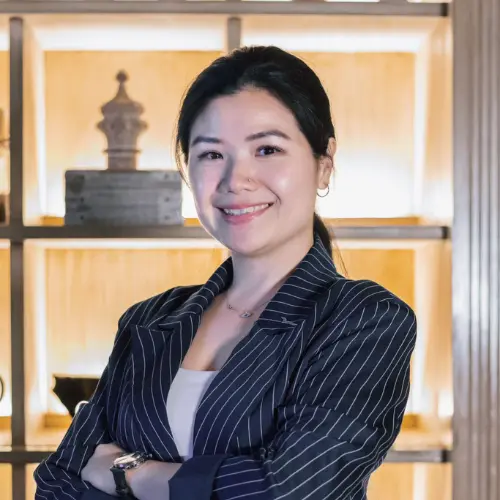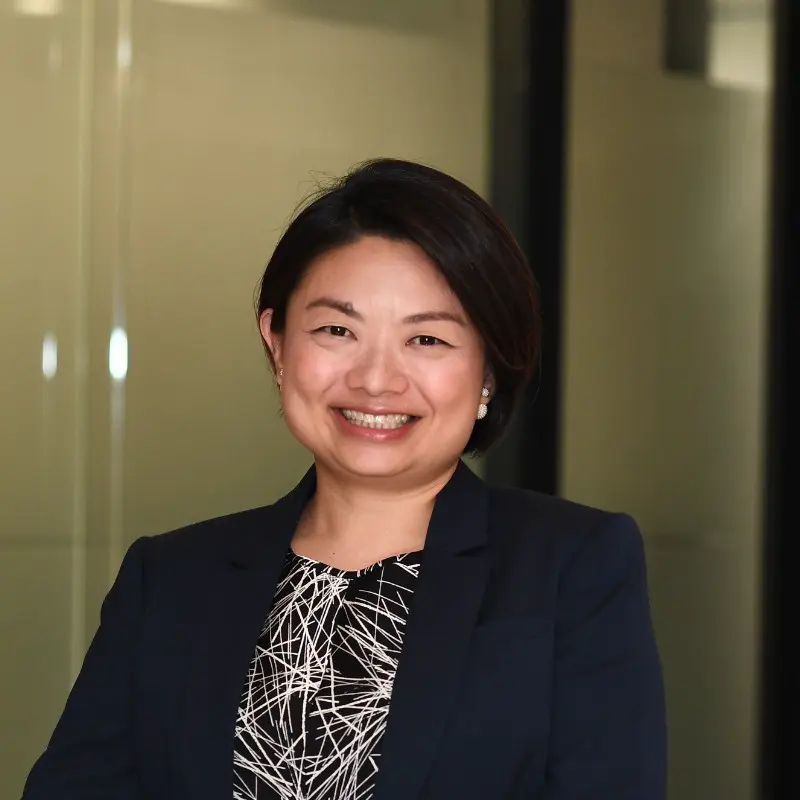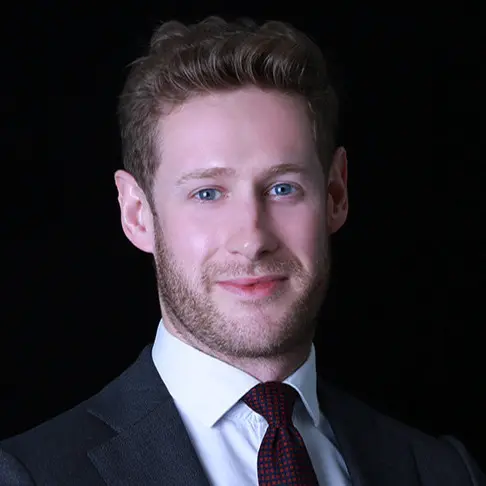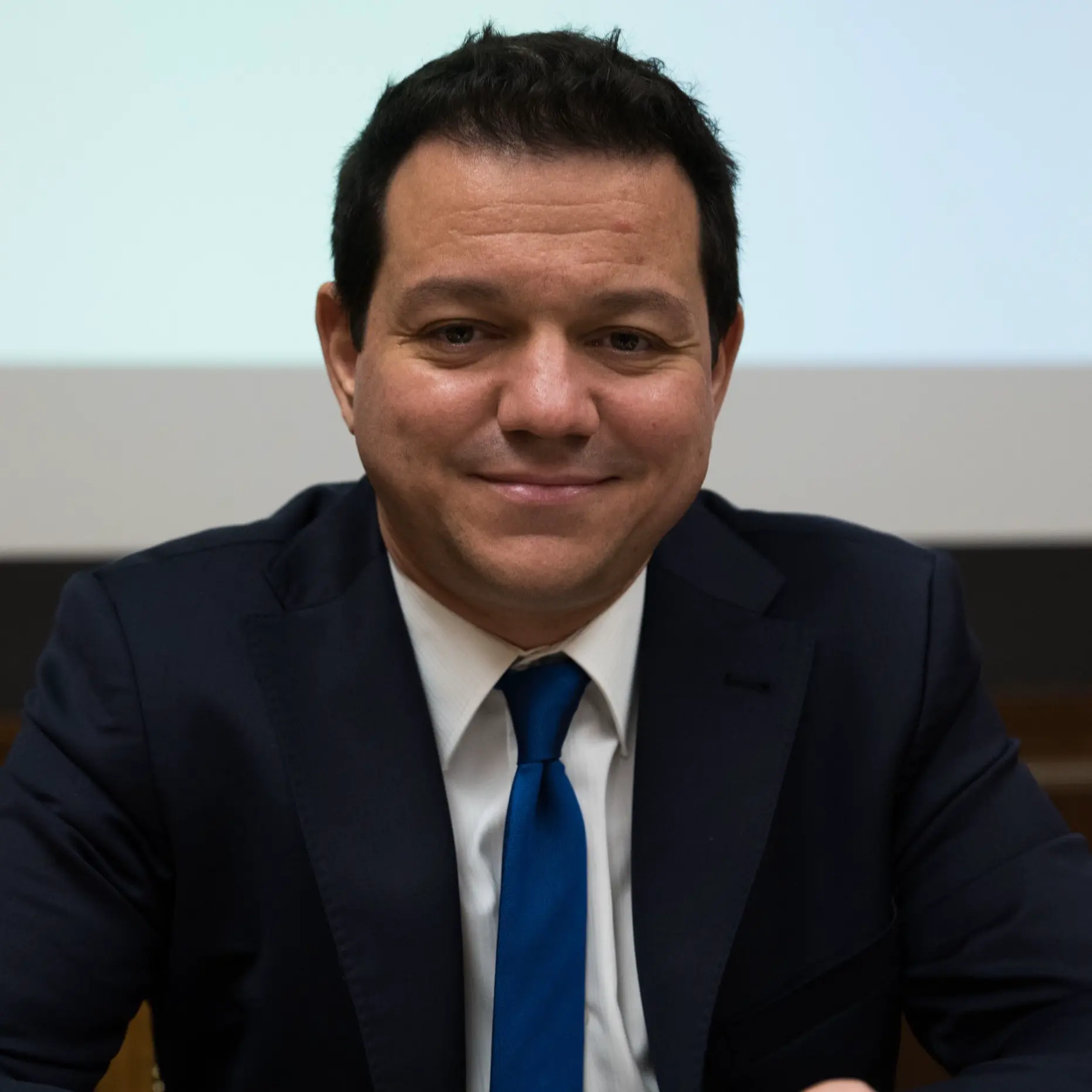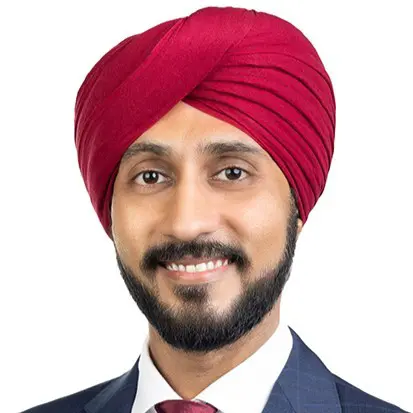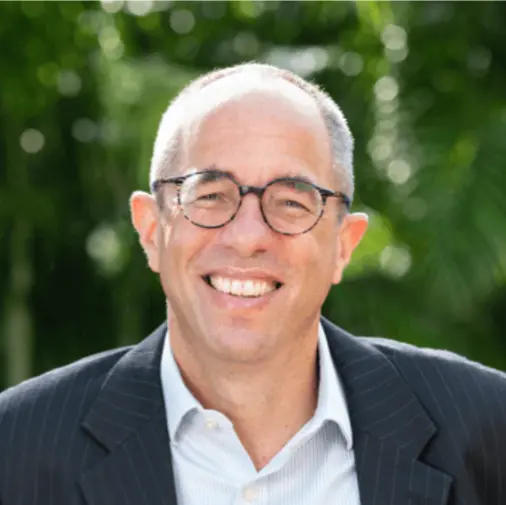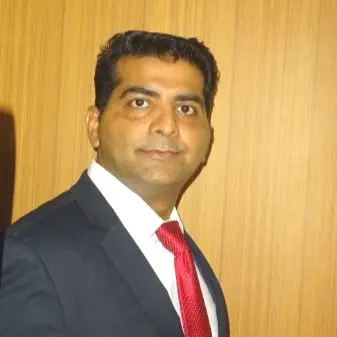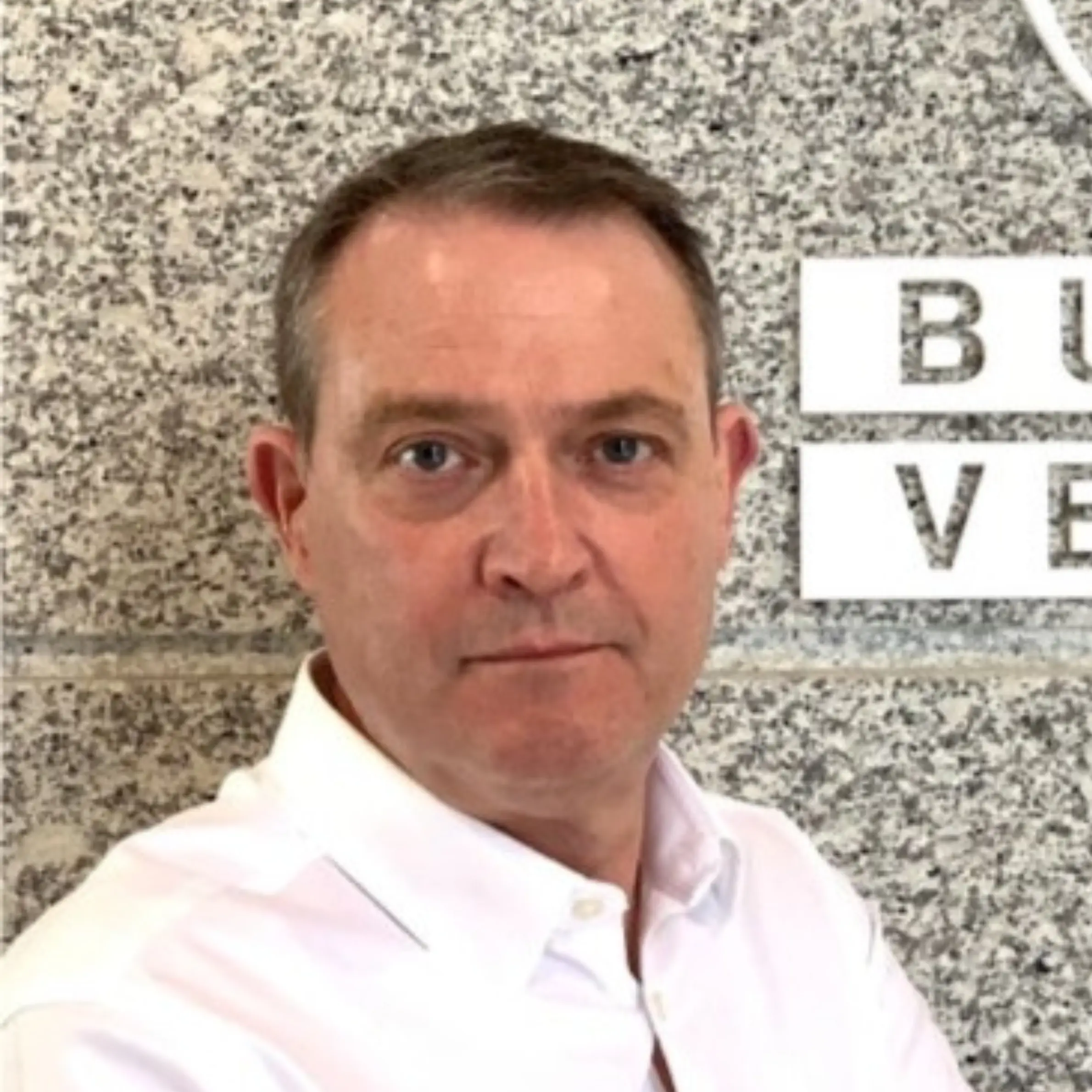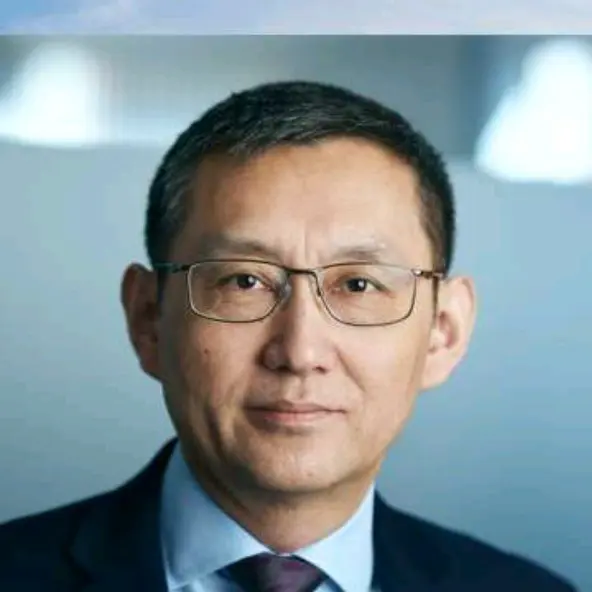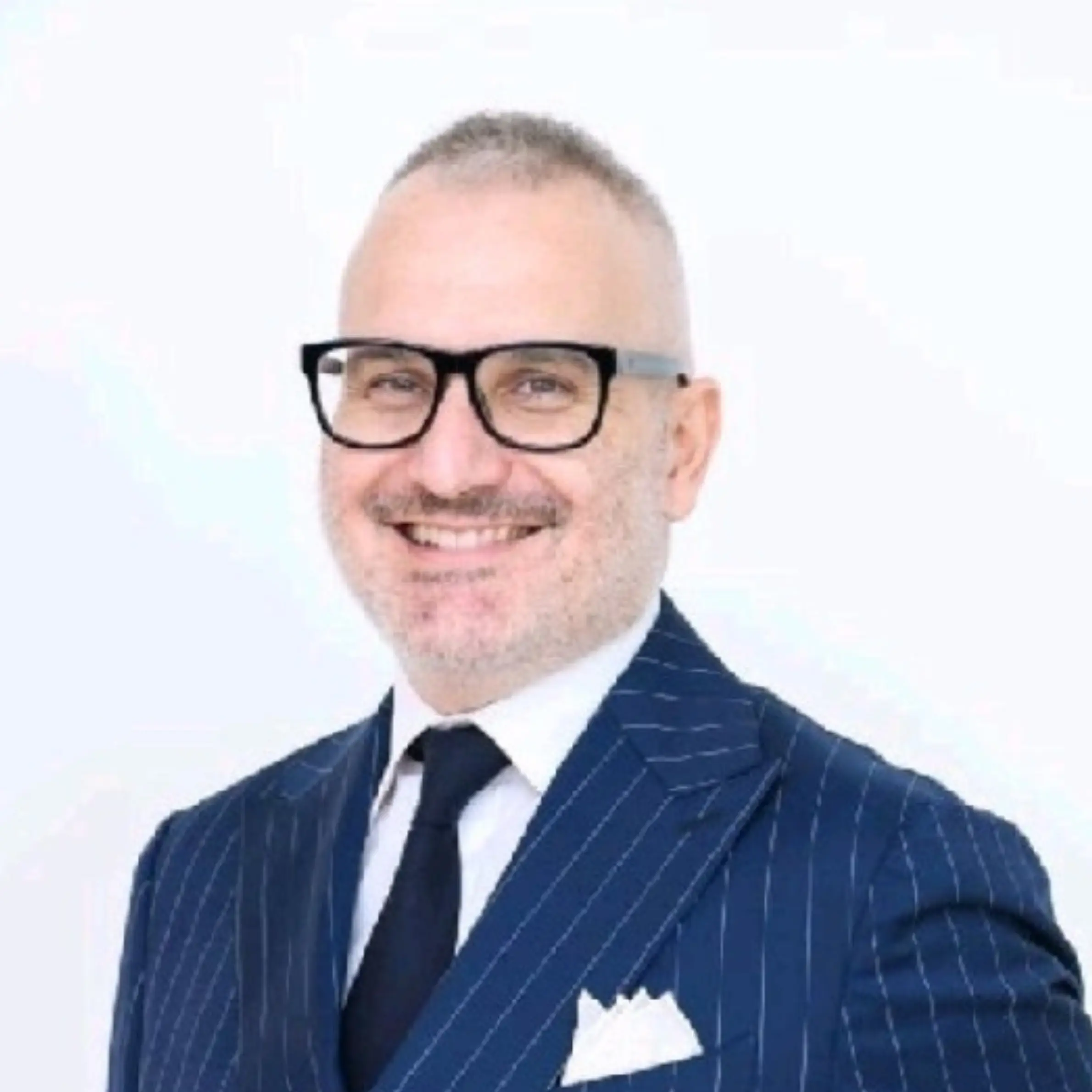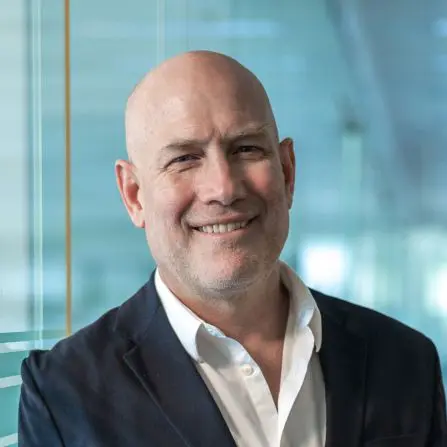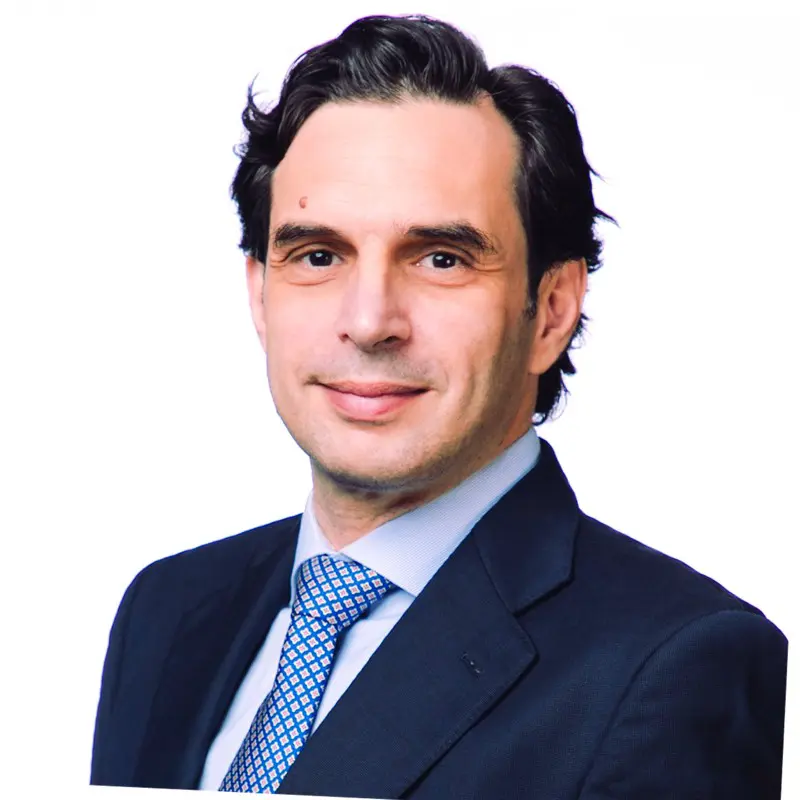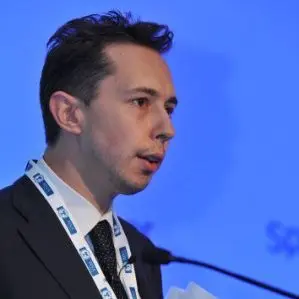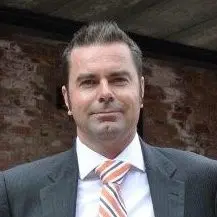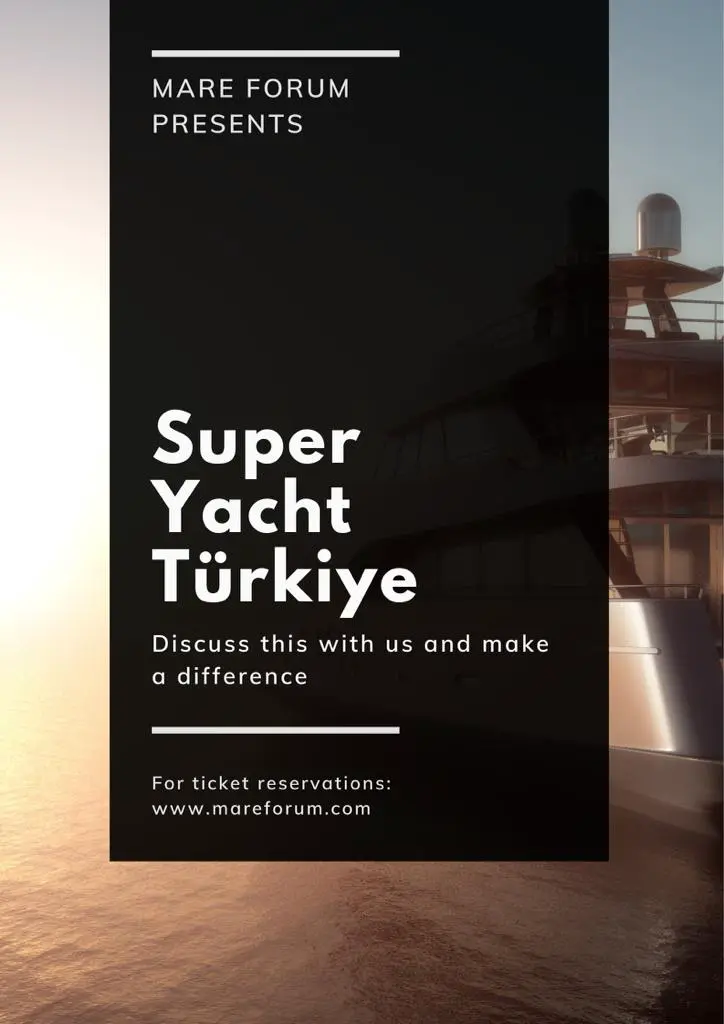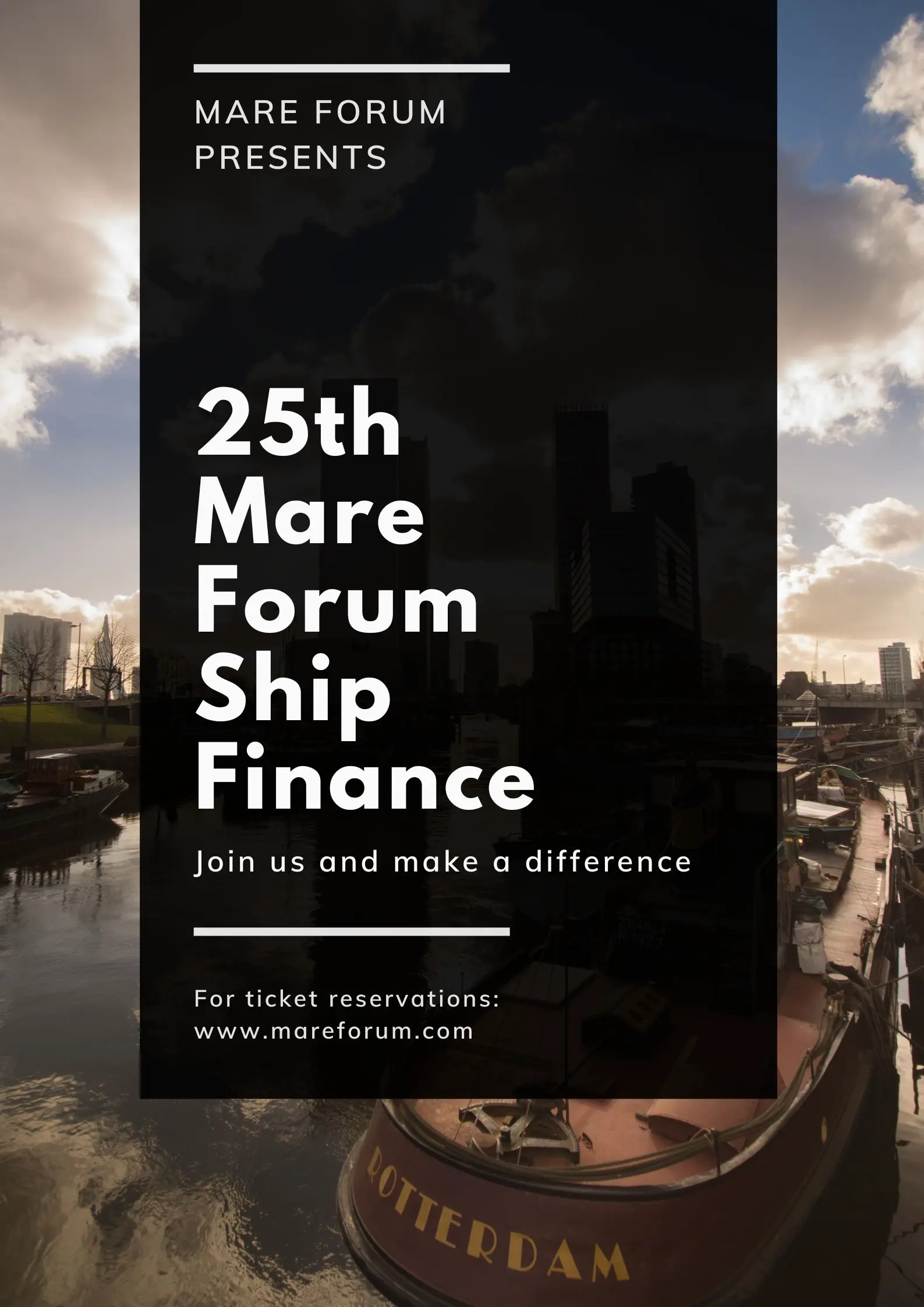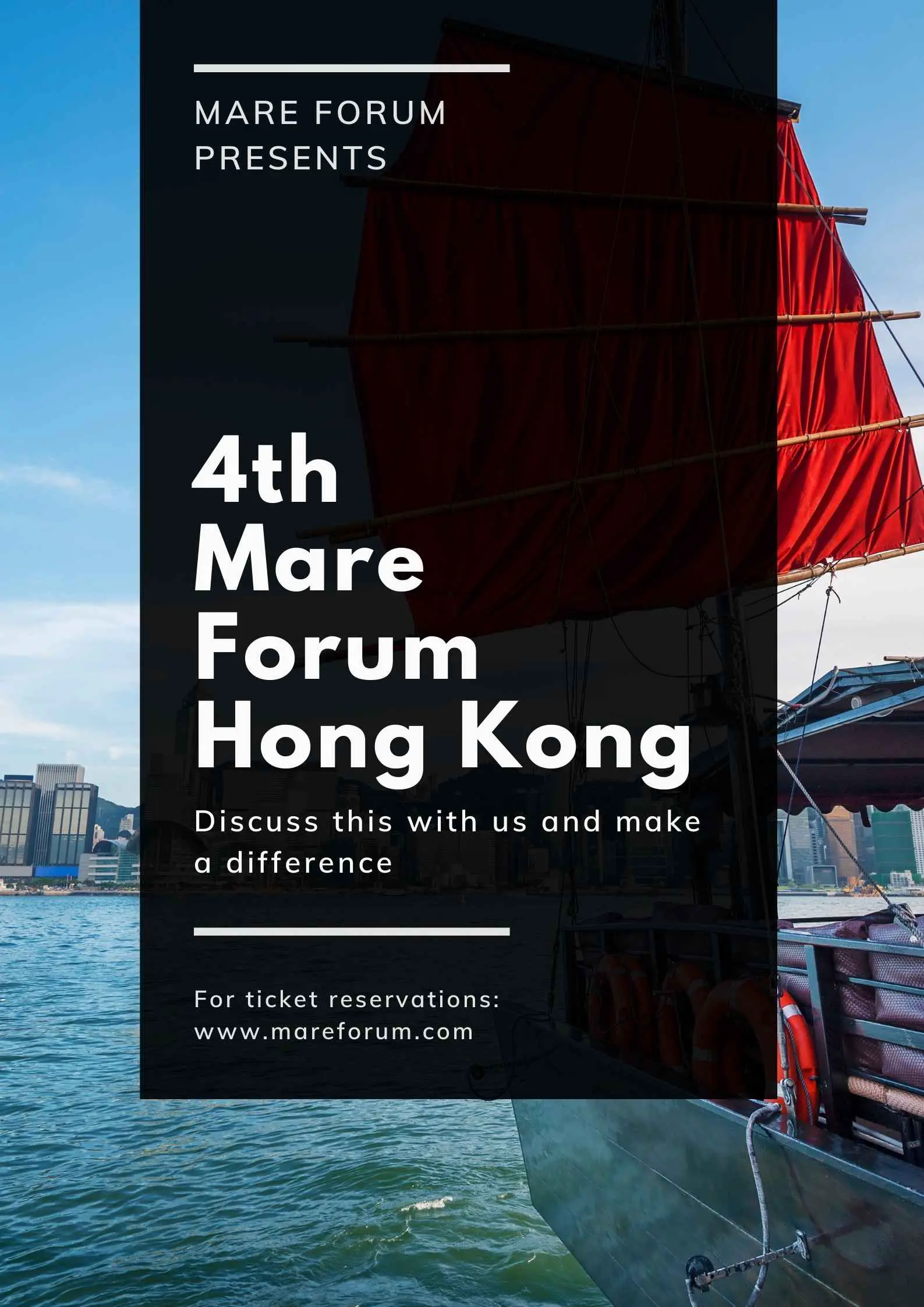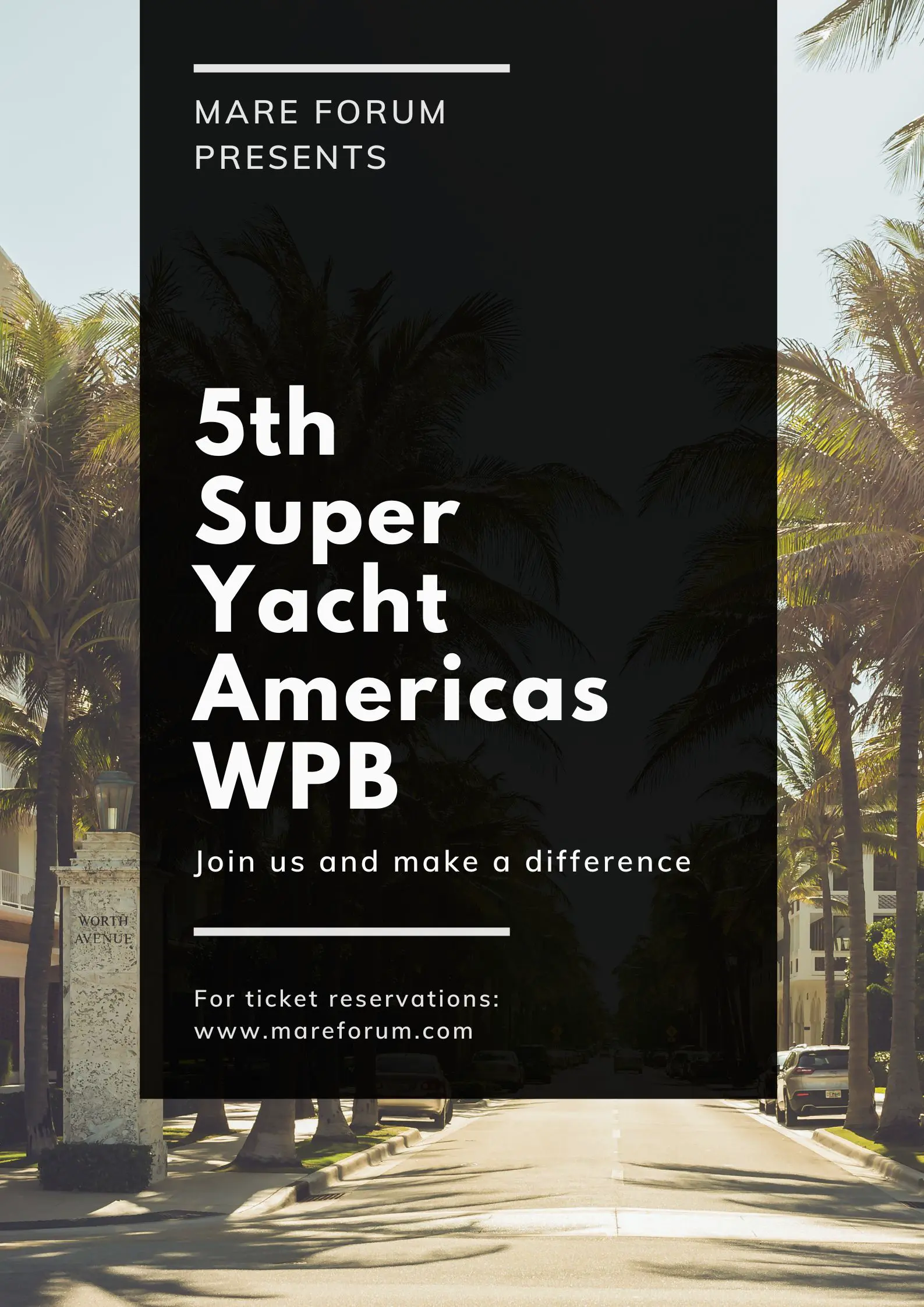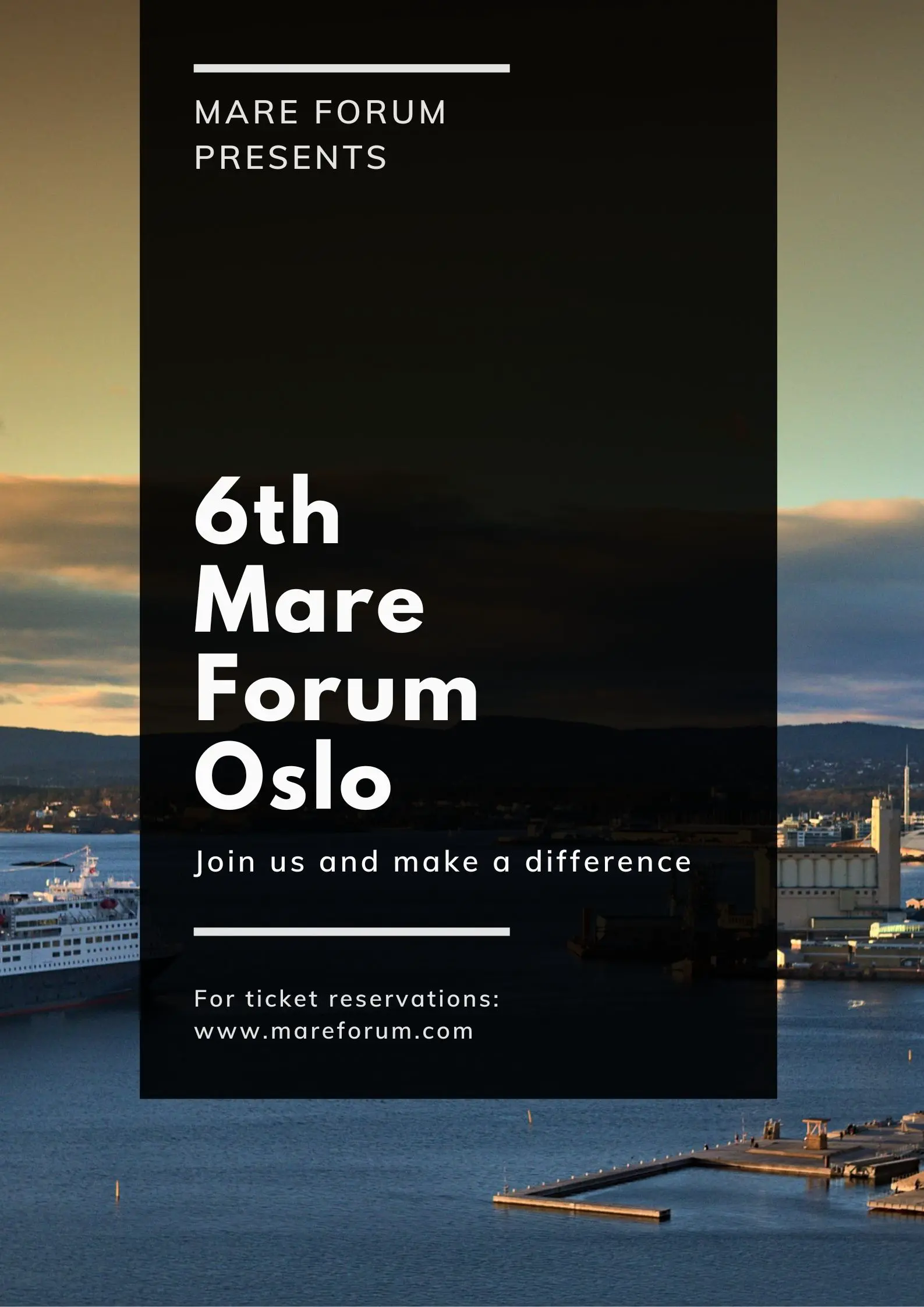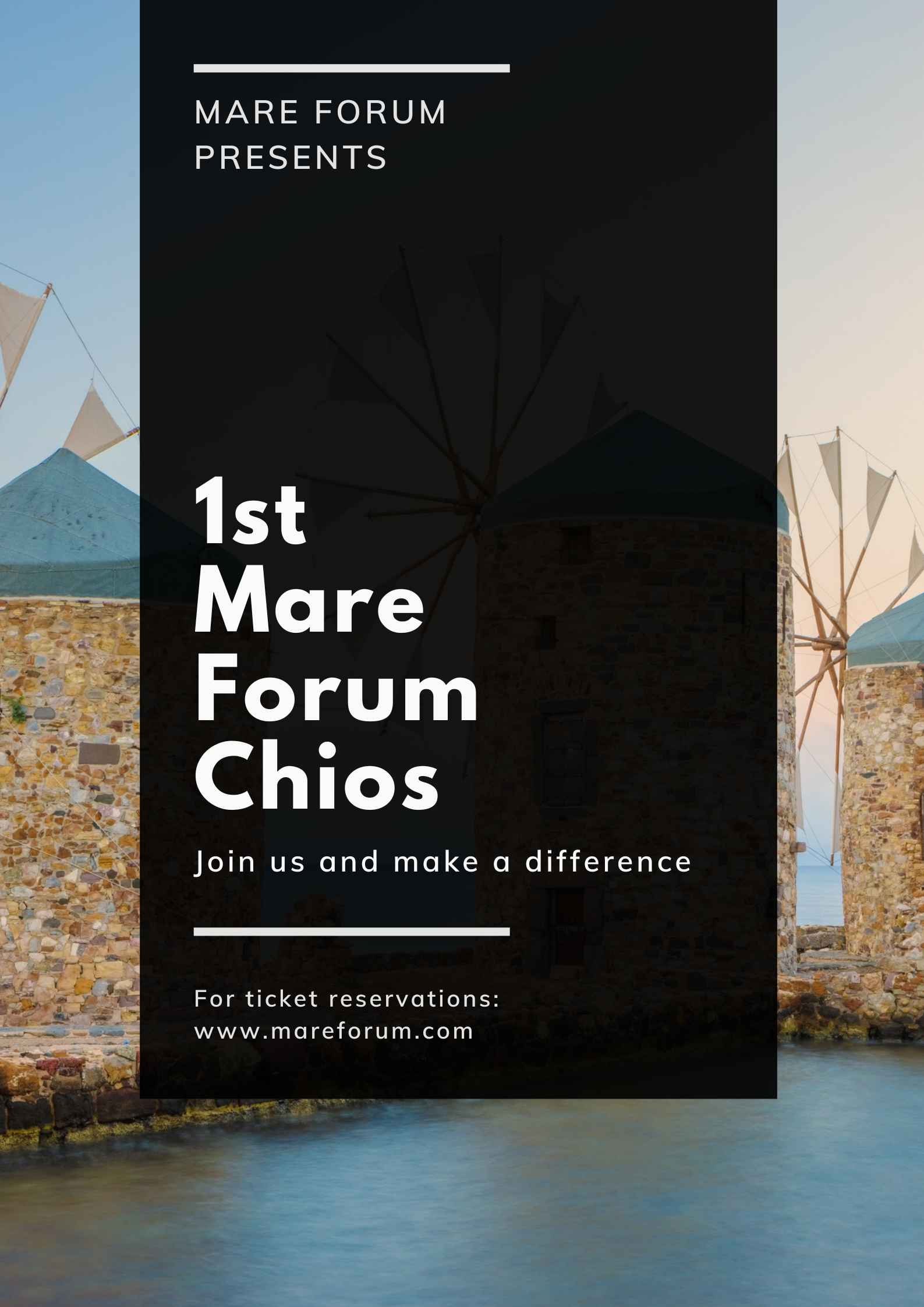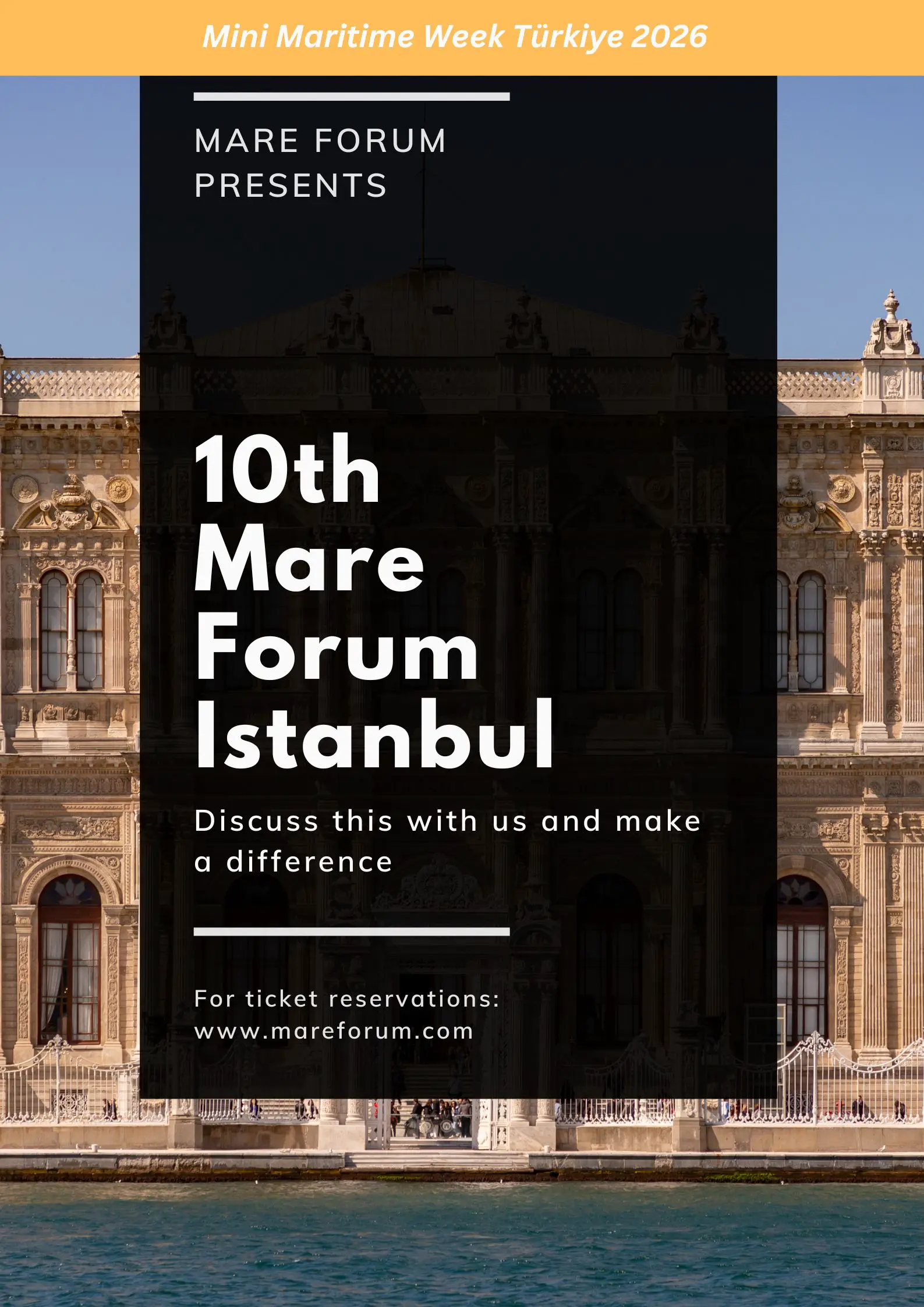The conference will take place in an open, daring and stimulating environment combined with transparent discussions, with executives actively participating, discussing, debating and will exchanging their thoughts, ideas, visions, and roles in (green) shipping, energy transition and security, decarbonization, financing, and investing models for today and the future and how Maritime Singapore can become the Leading Green maritime Hub of the world.
Participants will plunge into a pool of booming businesses, network opportunities, and knowledge transfer.
It will be inspiring, Be There, Be Heard.
P R O G R A M M E
Conrad Centennial Singapore Hotel
[to view the speakers and discussion panellists scroll down]
13:00
Registration
13:30
session 1
Opening and Welcome
CONFERENCE CHAIRMAN
- Zhongyi (John) Su, President & CEO, Erasmus Shipinvest Group
ORGANISER
- Georgios (Ilios) Kostoulas Executive Director, Mare Forum
KEYNOTE SPEAKERS
- Dimitris Belbas Head of Shipping Finance, Asia Pacific Seafin Pte Ltd - Eurofin, Singapore
13:50
Session 2
Exploring the shipping and trade opportunities while sailing in unknown waters. The voices of Charterers - shipowners – capital providers – and regulators
Discussion themes:
- Challenges, opportunities and risks in today's global trade, shipping, economy, and regulations.
- What are the Shipping and trade markets forecasts for 2023 and beyond?
- Energy transition status, energy security, geopolitics, tensions, wars, (de)globalisation, changing trade patterns, supply chain disruption, inflation and USD forecast
- One step back or two steps ahead? Are we stepping back to coal, oil, gas, and nuclear energy modes, and for how long?
- Are the regulators the first movers with global regulations? Are regional rules adding complexity or accelerating the transition? What about the IMO?
- Are the market forces the first movers? What are the incentives for first movers to decarbonisation?
- Should the Charterers pay for GHG emissions? OR Should shipowners be the only ones accountable for GHG emissions? What is the role of important stakeholders such as Charterers and Ports?
- How can (environmental)regulations become better balanced with market realities?
- How can the shipping industry efficiently respond to local, regional, and international regulations?
- How can we create a synergy between the shipping industry stakeholders?
- Do we need talented and charismatic people for the future of shipping
- Where will they come from?
- Do we need new skills and expertise, plus more diversity in shipping?
- What are the visions of the young generation?
SESSION CHAIRMAN:
- Mario Moretti Managing Director, V.Ships Asia Group Pte
PANELLISTS:
- John-Kaare Aune CEO, Wallem Group
- SK Lim, Managing Director Pacific, G2 Ocean
- Arjun Batra Executive Chairman, Drewry Group
- Ralph Leszczynski Global Head of Research, Banchero Costa Group
- Akanksha Batura Pai Head of Strategy and Growth, SINODA Shipping Agency
- Zhongyi (John) Su, President & CEO, Erasmus Shipinvest Group
- Dimitris Belbas Head of Shipping Finance, Asia Pacific Seafin Pte Ltd - Eurofin, Singapore
- Nicholas Brown Communications Director - Marine and Offshore, Bureau Veritas
- Alicia Tan Commercial Manager, AXSMarine
14:30
Session 3
The right way ahead to Decarbonisation - What are the key lessons to be learned?
Discussion themes:
- How exposed is the existing fleet to upcoming legislation, and how do shipowners mitigate risk?
- Are carbon-neutral or zero-carbon operations a target? If so, what are the steps to reach it (e.g. vessel speed, efficiency upgrades, switching to alternative fuels, offsetting etc.)?
- What is now required to start reducing emissions immediately?
- What are possible incentives for first movers to decarbonisation?
- How are alternative fuel suppliers preparing to provide carbon-neutral and zero-carbon fuels for shipping at scale? Are we still stuck in a chicken-and-egg situation, or are we one step further?
- What is the role of charterers, shipowners, capital providers and regulators in the multi-relationship structure of their interests, focusing on sustainable and commercially viable shipping and trading industry?
- Will repair yards have the capacity to deal with an upcoming wave of retrofits? How are they preparing for the challenge?
- What are the necessary changes in port infrastructure, and is there an implementation plan? What are the key priorities?
- Can industry-wide initiatives, such as green corridors, accelerate the industry’s transformation? What does it take for them to be successful?
- What can we do now to help accelerate the availability of zero-carbon ships while at the same time reducing shipping’s footprint: slow steaming, retrofits, ESG reporting, and verification
- What are the key lessons to be learned?
SESSION CHAIRMAN:
- Stam Achillas Head of Business Development & Sales, 2-Stroke Fuel Conversions, Wärtsilä
PANELLISTS:
- Sanjay C Kuttan Chief Technology Officer, Global Centre for Maritime Decarbonisation (GCMD)
- Shane Balani Decarbonisation Consultant, Lloyd's Register
- Mei Leng Lao Audit Partner and Head of Sustainability & Governance Group, at Moore Stephens LLP
- Abhishek Asija Managing Director, Ship Management Commercial, APAC, V.Group
- David Barrow Vice President, South Asia, Bureau Veritas Marine & Offshore
- Gurpreet Singh Chief Commercial Officer, RightShip
- Ioannis Stefanou Managing Director Shipmanagement, WALLEM Group
- Peter Chuang General Manager, PT Sentek Indonesia
- Anthony Zolotas Chief Executive Officer, Eurofin Group
15:20
Break
15:40
session 4
What are the benefits of the features of alternative Finance and other models to the global shipping industry?
Where does the money come from, and how do you get it?
Discussion themes:
- Financing and Investments- what are the key performance criteria lenders evaluate when providing funds to shipowners?
- What are the trends in banking, alternative ship finance, bonds and other models of finance and investments on the way to decarbonisation?
- What will be the future role of Asian and global banks in the industry (in the context of the increased role of alternative finance providers)?
- What are the benefits of the features of Alternative Finance to the global shipping industry?
- Will pension fund money flow into the international shipping debt markets, and what is required for this to happen?
- Will the maritime green trend accelerate in case the role of alternative finance in shipping increases?
- Will alternative finance focus more on new-build financing or on second-hand?
- How do shipping companies choose an appropriate lender?
- Lending has become highly diverse; what are the most common alternative financing structures?
- Is there competition between banks and alternative capital providers?
SESSION CHAIRMAN:
- Zhongyi (John) Su, President & CEO, Erasmus Shipinvest Group
PANELLISTS:
- Ali Susanto Managing Director, BRAEMAR Corporate Finance
- Jolene Chew Director, Clifford Capital
- Tan Kok Peow General Manager / Chief Financial Officer, Seven Yield
- Jianjun (JJ) Wang Regional Director - Asia, MSI
- Shmuel Yoskovitz CEO, X-Press Feeders
- Pedram Norton Partner (Shipping and Offshore Finance), Stephenson Harwood (Singapore) Alliance
- Dimitris Belbas Head of Shipping Finance, Asia Pacific Seafin Pte Ltd - Eurofin, Singapore
- Keng Mun Lee Managing Director, MPartners Pte Ltd
- Jeffrey Tanner Managing Associate, Stephenson Harwood LLP
15:20
Break
16:20
Session 5
Is Maritime Singapore on its way to becoming a Leading Green Shipping and Maritime Hub Centre of the World?
What does this mean to shipowners, traders, financiers, and many other service providers
Discussion themes:
- How does Singapore compare to other hubs as a maritime ecosystem of shipowners, ship and port operators, charterers, financiers, fuel suppliers etc.?
- What does it take for such an ecosystem to leverage its diversity to accelerate maritime decarbonisation
- What is the role of industry and government?
SESSION CHAIRMAN:
- David Barrow Vice President, South Asia, Bureau Veritas Marine & Offshore
PANELLISTS:
- John-Kaare Aune CEO Wallem Group
- Zhongyi (John) Su, President & CEO, Erasmus Shipinvest Group
- SK Lim, Managing Director Pacific, G2 Ocean
- Mario Moretti Managing Director, V.Ships Asia Group Pte
- Stam Achillas Head of Business Development & Sales, 2-Stroke Fuel Conversions, Wärtsilä
- Dimitris Belbas Head of Shipping Finance, Asia Pacific Seafin Pte Ltd - Eurofin, Singapore
- Alicia Tan Commercial Manager, AXSMarine
- Arjun Batra Group Managing Director, Drewry Group
- Shane Balani Decarbonisation Consultant, Lloyd's Register
- Nicholas Brown Communications Director - Marine and Offshore, Bureau Veritas
- Audience participants
17:00
Closing remarks
- Zhongyi (John) Su, President & CEO, Erasmus Shipinvest Group, Conference Chairman
- Georgios (Ilios) Kostoulas Executive Director, Mare Forum
17:10
Drinks hosted by Mare Forum
Speakers & Panelists
Project Partner(s)
